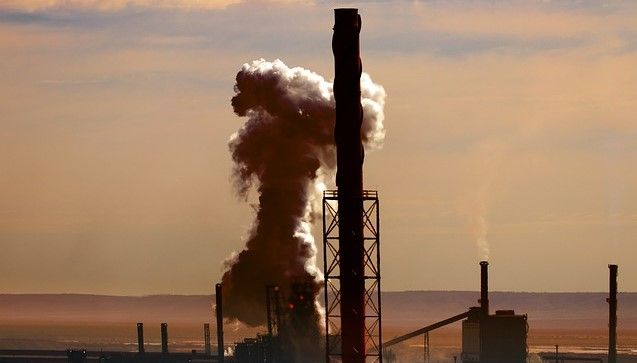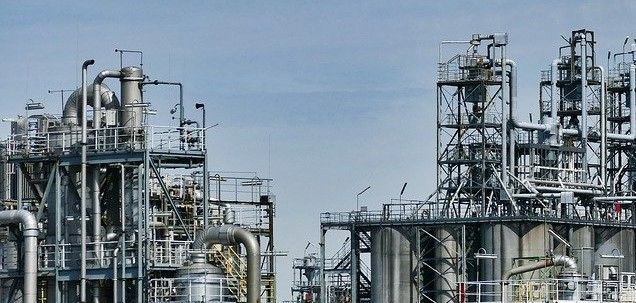As the largest producer of chemicals in the world, what ever happens to the American chemicals industry will undoubtedly have an impact on chemicals markets around the world.
This makes the shift in political power in America an uncertain time for chemical companies. President-elect Biden is waiting in the wings to take over running the American economy and control of the Environmental Protection Agency (EPA) which heads chemical industry governance. So, what can chemical companies expect from a Biden White House?

How will Biden’s handling of the chemicals sector be different from Trump’s?
Bob Masterson, CEO of the Chemistry Industry Association of Canada (CIAC) – a trade group representing Canada’s chemical industry executives – knows the significance of American policy to trade and the chemicals industry better than most. As a recent ICIS report states, “The US market is critical to the Canadian chemical industry. About 80% of Canada’s chemical production is exported, and about 80% of those exports go to the US.”
His group view the recent election outcome as quite positive. Firstly, he believes that Canadian chemical companies will be glad to be spared, what he calls, “the random acts of violence” Trump used to create on trade. He also sees Biden’s shift towards tackling climate change a big help, not only for the planet, but for non-US chemical companies as tougher US environmental policies would create a “more level playing field”.
“If you are in Canada and your competition is in Texas, Louisiana or Pennsylvania, and you are paying C$25/tonne, going to C$50/tonne, for your emissions, and your American counterparts don’t pay anything, that’s an un-level playing field”, he said.

While there is no certainty that huge carbon or emissions taxes will form part of Biden’s chemical industry policy, there is a belief that his policies will alter oil and gas markets.
For example, it is quite probable that he will attempt to restore the international nuclear deal (Joint Comprehensive Plan of Action) with Iran. If agreed upon, that will mean a significant drop in oil prices as Iranian supplies will enter the market.
At the same time, while Biden ruled out revoking current fracking licenses on the campaign trail, he may still block new licenses, or at least make them much harder to come by. This would, according to petrochemical analysts at the consultancy Wood Mackenzie, “… mostly impact future offshore production, however tighter regulations combined with a low-price environment may slow overall US upstream activity. The consequence could be lower availability of NGLs, like ethane for petrochemical feedstock, with an upside risk for prices.”

Another predicted policy change is America’s inclusion to the Paris Climate Change Agreement which may further negatively impact petrochemical production. In the longer term though, it is likely to boost demands for the chemicals and sustainable actions needed for a zero-carbon energy network, such as solar panels, improved building insulation, and electric vehicles.
Biden, Chemicals, and Trade
On trade, the experts at Wood Mackenzie see Biden attempting to rebuild bridges with America’s long-term allies in Europe and Japan, although the US tariffs Trump deployed on those nations will need to be resolved.
Beyond this approach, no major policy shift is expected, as “In recent years, export destinations for US chemicals and polymers have shifted in response to trade disputes. That seems unlikely to change over the short term, with little movement in US policy in relation to China. China is expected to remain undeterred and continue forward with its investment plans in the chemicals sector, with the goal of achieving self-sufficiency across the chemicals value chain.”

Too soon to say what Biden’s chemical industry policy will be.
At the time of writing, it isn’t yet known who Biden’s pick as head of the Environmental Protection Agency (EPA) will be.
Despite this, there are already critics for Biden’s selection for his EPA transition team, as it includes the former DuPont executive Michael McCabe.
Chemical regulation activist Erin Brockovich, famous from the movie that shares her name, saying that, “This smells of the dawn of the same old. To quote The Who: meet the new boss, same as the old boss. It should go without saying that someone who advised DuPont on how to avoid regulations is not someone we want advising this new administration.”

Whoever Biden ultimately chooses for the role will be key, as their predecessors attempted to ease restrictions on American manufacturing, domestic power production, and chemical companies by rolling back numerous laws put in place by earlier administrations.
For example, the Trump White House reduced mileage and emissions standards for the auto industry, eliminated methane emission requirements for oil and gas producers, and replaced the Clean Power Plan regulations with the Affordable Clean Energy rule, reducing restrictions on coal-fired power plants.
Biden and the TSCA
Central to the chemical industry in America is the Toxic Substances Control Act (TSCA) which has the power to ban or limit chemical product usage, as well as granting permission for new chemical products.
Industry analysts at FTI Consulting believe that in a change to Trump’s “less-is-more approach” the Biden EPA will “pursue a far more aggressive approach to chemical review and the management of chemicals.”

Specifically, the report notes that likely EPA policy changes include:
· Expanded data submission requirements for the chemical industry both at the beginning and throughout the review process.
· A longer review and approval processes.
· A re-evaluation of Trump-era reviews beyond the scope of just “intended use”.
· Urgent review of the most controversial chemicals which are dominating public discourse.
· Increased alignment between a Biden EPA and the European Chemicals Agency (ECHA) and REACH regulation.
Election Outcome still Uncertain
Of course, crucial for major change, is the ability of the Democrats to control the Senate, as well as the House of Representatives and the Presidency. At present, the last two vacant seats in the Senate are in Georgia, where a run-off election being held on Jan 5th 2021 will decide if a Biden Administration can gain ultimate governmental power. If the Democrats can win them both they will have the same number of senators as the Republicans at 50 each. All tied votes on policy, federal judges, and budgets would then be decided by the Democrat vice-president Kamila Harris.
If that happens, then America’s chemical industry could see some major changes from the current status quo.
Photo credit: SatyaPrem from Pixabay, ivabalk, 2427999 from Pixabay, Gerd Altmann, Pixabay, TitusStaunton, & Scott Wilkinson from FreeImages, Pexels